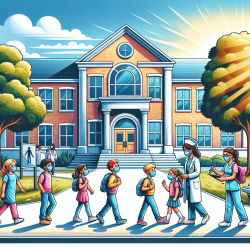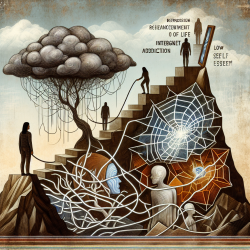In the realm of education and family dynamics, the ripple effects of educational attainment extend far beyond individual success. A compelling study titled "Does schooling attained by adult children affect parents' psychosocial well-being in later life?" explores this very notion using Mexico's 1993 compulsory schooling law as a quasi-experiment. The findings offer valuable insights for practitioners aiming to enhance their skills and understanding of intergenerational influences on mental health.
The Study's Core Findings
The research utilized data from the 2012 Mexican Health and Aging Study, focusing on adults aged 50 and older. By leveraging the exogenous variation in adult child education induced by the 1993 law, researchers employed two-stage least squares regression to estimate the effects of increased schooling among adult children on their parents' depressive symptoms and life satisfaction scores.
- Depressive Symptoms: Increased schooling among adult children was associated with fewer depressive symptoms in older parents, particularly benefiting mothers more than fathers.
- Life Satisfaction: No significant difference was found in life satisfaction scores based on children's educational attainment.
- Gender Differences: The study highlighted variations in impact based on the gender of both parents and children, with increased schooling among sons showing a more pronounced effect on reducing depressive symptoms.
Practical Implications for Practitioners
The implications of this study are profound for educators, therapists, and policymakers. Here are some actionable insights:
- Encourage Further Education: Promote policies that support extended education for younger generations as a means to improve not only their own prospects but also the mental health of older family members.
- Cultural Sensitivity: Recognize the cultural contexts that may influence family dynamics and support systems. Tailor interventions to consider these nuances, especially in diverse socio-economic settings.
- Mental Health Support: Develop programs that address the mental health needs of older adults, incorporating family education as a component of holistic care strategies.
The Need for Continued Research
This study underscores the importance of continued research into intergenerational influences on mental health. Practitioners are encouraged to explore further how educational policies can serve as instruments for broader social change, particularly in low- and middle-income countries where family support systems play a crucial role.










